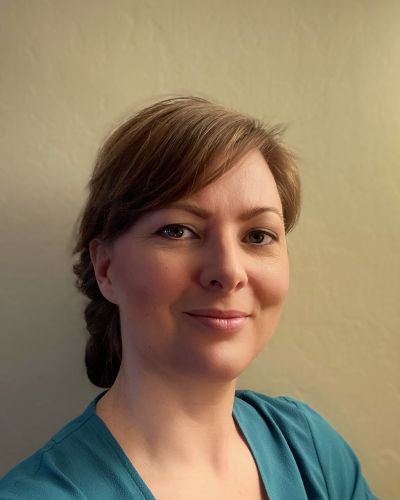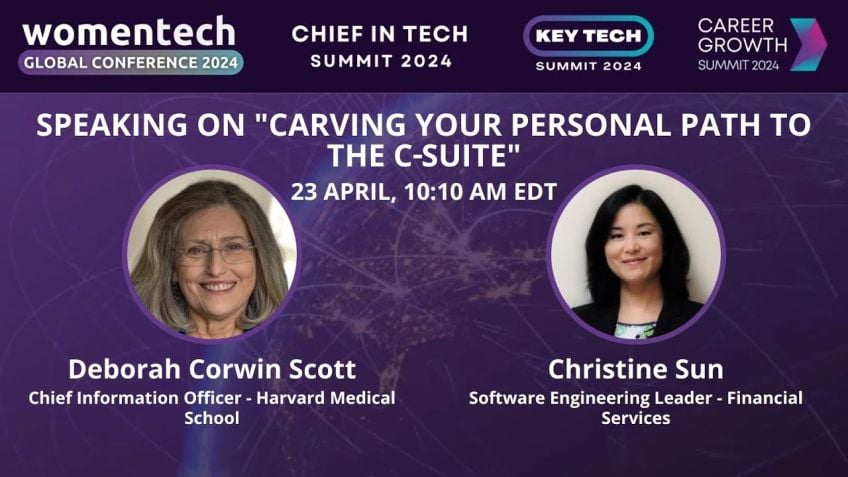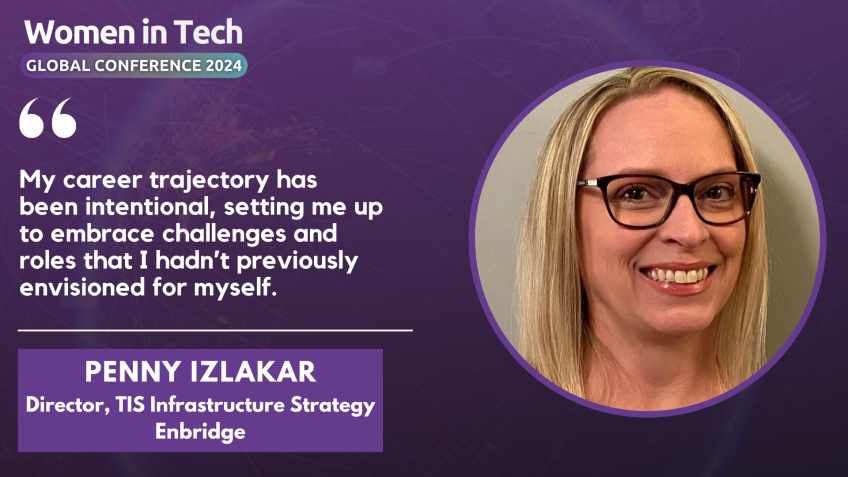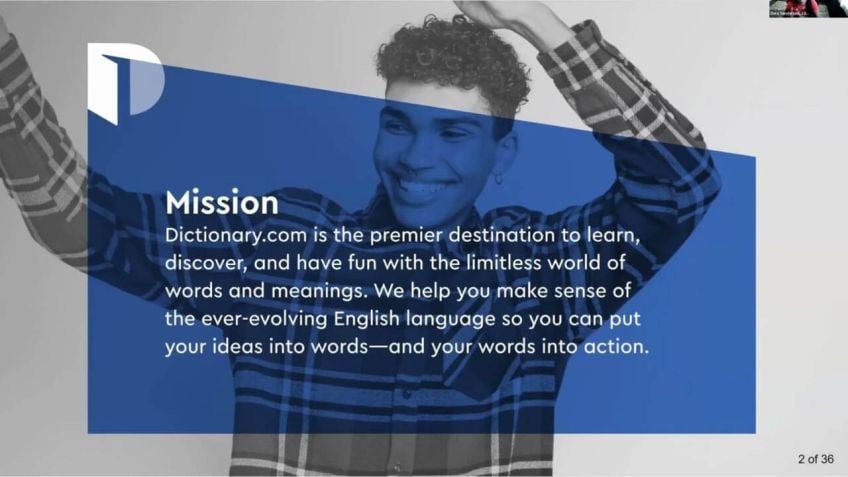Be a circle in a world of squares
Eva Nahari
PrincipalReviews
From Engineer to Investor: Lessons for Success in Tech Start-ups
Today, we bring you some key insights from Eva Nehari, an inspiring woman whose journey from engineering to investment in machine learning and infrastructure technology start-ups is a real testament to persistence, ingenuity, and finding one's passion.
The Beginning: A Career in Sight, No Job in Sight
Despite completing a rigorous five-year college degree in Computer Science, focusing on AI and machine learning, Eva found herself jobless due to an abrupt market crash. Yet, in the face of adversity, she didn't lose hope. "There is a way to get a job even in the most dark economies."
Not Just a Job, But the Right Job
Eva distinguished herself from other job seekers by fusing her passion for machine learning with the company's needs. With grit and creativity, she reframed a demanding tech product role into a job she loved, a testament to her belief that "when you think there is no way or when the path looks like a way that you don't really like, how can you take the challenge of shaping it into something, creating a path where there isn't one or shaping it into something you will like."
Embracing New Beginnings
Her next major career move took her from Sweden to a strategy role in Silicon Valley. Eva shares the importance of not overthinking big decisions and not letting fear hold you back. "In my experience, it's only what you didn't do that you regret and you only lose when you don't try."
Embracing Uncomfortable Growth
After a decade in Java and Infrastructure space, Eva dared to step into a new industry - distributed data processing. With the muted discomfort zone, she learned a valuable lesson; growth only happens when you're challenged. "Nothing in life is easy, that's worth doing."
Shaping Your Success: Be a Circle in a Square World
Yet, for all her personal and professional growth, Eva found herself feeling stagnant. Despite being recognized and appreciated, promotions weren’t happening finding herself in a glass ceiling situation. She soon realized, though, that the key was not to become a perfect square, but rather to embrace her own unique 'shape.' "What is unique about you is your shape."
There is No Failure: Only Winning and Learning
Eva insisted that failure is often an illusion; one either wins or learns. Thus, fear of failure should never hold anyone back from experiencing growth or pushing for success.
To Pay It Forward is the Ultimate Success
In the end, Eva encouraged all those who have found success especially those who have found their unique 'shape' to pay it forward, uplift, and help guide those still striving to break free from their square molds.
Connecting with Eva Nehari
Eva’s journey in the world of tech start-ups is not just a tale of successful career moves, but also of passion, risk-taking, self-realization, and growth. She continues her work in investing and would love to connect with like-minded professionals, to share her experiences, learn from theirs, and together make a better tech world.
Video Transcription
Hi, everyone. I am Eva Nehari and I work in the investment team at DNX Ventures, investing in early stage B to B start ups, mainly in machine learning and infrastructure technology today. Though I'm here to talk about a few of my life stories.Part of my uh life changing moments of a roller coaster journey, I guess uh from engineering to engineering manager to product leadership in various forms and in big and small and medium size companies in Europe and in the US. And now I spend my days investing in start ups. So I hope these stories will help inspire someone out there to create their own path. But let's start at the beginning once upon a time in a country far, far away called Sweden. I had just finished a five year um college degree in computer science with focus on A I and machine learning. And all I had left was this master thesis project and in Sweden, that's a paid for employment uh many times. So I was looking for a job and as I started reaching out to companies to ask if they could sponsor my, my me finishing up my degree and, and an employment, the market crashed and uh overnight companies went belly up. There were no jobs, no hiring and of course, even less so funding for, for a master the thesis project and a, and a student coming out of college. Right. And interestingly enough history has a tendency to repeat itself.
So if you look at the uh economy curve there, um, in the, in the slide, the chart, I overlaid it with the current economic uh curve. And it's interestingly very similar, isn't it? But I'm here to tell you that there is a way to get a job even if in the most um dark economies. So let me share that story with you first. So I was down to my last three connections. I had collected all these business cards over the years, uh job fairs conferences, whatever during college. And I've been told to collect connections, right? I was down to my last three and one was to this company building a very, very difficult tech product, low level, you know, translating Java programming language to, to machine code. And it was, you know, nothing I knew anything about at that time. Um It didn't seem interesting to me either. I was more into machine learning and helping advanced um you know, advancing other tech. Uh I was, my mind was set on pacemaker simulation for some reason, helping the world. So it was very different from my, my dream. Uh what I did know about this company though is that they hired the best from every uh college year. So the best student always got hired by them. So adding to the fact that this was not a fit, this was not fitting my profile on paper at all.
I was, you know, above average at best at college. But long story short, I call them, I didn't have many options, did I? So I called them and the guy actually remembered me. So I don't know how it happened. In the matter of that call. I had an interview two days later and when I hung up, I panicked because I'm like, I don't want to work with Java virtual machines. I don't even know what it is and I had to study up on it and I had to come up like, how can I combine what I'm passionate about machine learning? A I with this hard tech, very difficult tech product? And um but I had this idea like, how can I make the job? I want? I stayed up two nights. I probably got some gray hairs in the process. I, I know I cried at some point. Um Anyway, I was desperate, I was panicking. I was afraid of failing to get a job. Um, everything was, was adding up and then I, I came there and everything started wrong. You know, I was so wrong in this place. I had a shirt and a skirt and everyone else was wearing t-shirt and jeans. I came in, all I saw were guys everywhere and like geeky um attire and I'm like, ha ha ha. I looked at the receptionist, the only woman I could see in that office and she gave me like this very supporting out of empathy.
Look, she knew how lost I was in this environment. But anyhow, the interview started and um the four founders came in, they couldn't have made it more intimidating for me. But the four founders interviewed me at the same time, this, you know, fresh out of college student, I, I don't know what they were thinking but it went on and, you know, and there was a discussion with projects they had um but here's where my life moment happened. Instead of picking one of their projects and trying to fit into what they were looking for. I presented them a new opportunity, my own idea on how machine learning could help solve one of their biggest uh product pain points that I had read up on. All four founders went quiet. It was like crickets in the room and I thought I had blew like I blew that interview. I didn't um I didn't get the job. I felt flustered, my hands were sweaty. I probably, you know, blushed out of embarrassment. Why did I do this? Why did I come up and talk about this idea? It might not even be possible to do what I suggested and it was the longest silence in my life, I think. Um, and I thought I really had lost the job, but in the hindsight, bringing my passion to the table preparing, well, on how that could help their mission forward, really showing I understand what they're trying to do was probably what got me the job.
I stood out by bringing my own idea myself to the table. I got the job in the job market where it shouldn't be possible. It should be noted though. I was, as I was speaking, I begged myself to stop. Uh I thought I was definitely messing up the interview. My head was full of fears, like, don't do it. What are you doing? Stop talking. But in the hindsight, I think my unfiltered crazy self for speaking up and for believing in me on some level and thereby creating a job that I went in excited about because I made it about something I love and they saw how that could benefit them. I actually came into this job liking it being passionate about it. And over time learning to love the space of infrastructure tech as a bonus. So the takeaway here is when you think there is no way or when the path looks like a way that you don't really like, how can you take the challenge of shaping it into something, creating a path where there isn't one or shaping it into something you will like so bring yourself to the table, create your path.
The second story is uh about six years later, I had worked as a full time engineer, team lead and somewhat project manager and engineering manager as well. I had tried everything in that office. The start up had also been acquired by an American large company and I had tried many things and grown within the team in Stockholm as far as I could. So I decided to join a different start up and resign from this minutes after my resignation, I got a call from Silicon Valley. The headquarters called me up and asked why I had not considered a move to the US if I wanted a change of scenery. And what happened after that call was basically 13 days of packing up my things, putting things in order, paperwork, government stuff, uh renting out my apartment, managing my family's fears about me moving to the US for a year to work with strategic customers. Something I've never done before.
I was going to change country culture home and role. If I had sat down and really thought this through, I would never have gone. That's just too much change in one bite. But the thing is I didn't sit down and think it through. There was something inside me that wanted this, wanted this adventure. And of course, I had the fear flutters going on like, oh my gosh, what if I can't do it? And moving to the States. What am I doing? Am I crazy? And something made me not listen to the fears but instead realize I have to do this. This is an adventure. I will learn something I can always move back. Right. So the takeaway here is don't overthink big decisions, then you will never do them. The fears and logic will take over. I think you should jump into things a little bit more like if you want it and you're scared about it, do it. Like don't let the fears hold you back if you want it, do it in, in my experience, it's only what you didn't do that you regret and you only lose when you don't try. After about 10 years in this Java and Infrastructure space, I had had many roles, um various size companies, start ups, big Corporates. I felt like I knew this space so well that I felt a little bit bored like I could do this job in my sleep.
And there was nothing really scaring me anymore. One day I get a linkedin message from a company that I had been chasing for a technical partnership with the company I was working at and I even bragged to my boss like, yeah, I got them. You know, I'm gonna go and close this partnership and I ran off to this coffee shop in Palo Alto, Silicon Valley and I sat down with their VP A product and two minutes in, I realized he's interviewing me for a job. It wasn't a partner meeting. I was very naive. And then looking back at the communication, yeah, it was probably signaled in between the lines. So to keep my face, I didn't admit that I was there for a partner meeting in a partner context, but I started taking the interview and then I took the next interview and then it showed really interesting to me. But at the same time, I had never worked with data warehousing or data, you know, data processing. And this was a distributed data processing framework. So it was a completely new area that I knew nothing about. And it terrified me, especially after 10 years because expectations are higher on you after 10 years working and to be a rookie again was, was very daunting. I didn't know if I could do this.
If I could learn another space, leaving my safe and trajectory career that was going well behind and starting a new with higher expectations. I spent that holiday uh um season. It was December uh studying this distributed data framework and taking different classes online and uh crying to my husband. Uh he was my boyfriend at the time but now has been like, I can't do this. What have I done? I signed up for this job that I can't do. But you know what he told me? Well, he told me I've never seen you stress out like this. Before. But he also told me, you only grow when it feels hard. And I've carried that with me and I've used it so many times. It's about, you know, changing things up is good because then you get into that uncomfort zone where you have to struggle where you have to find your grit and discipline and keep at it and try and try again and fail and try again. That's when you grow, that's when you enhance yourself. That's where you elevate yourself. Nothing in life is easy, that's worth doing. And I think in this era with a lot of shortcuts presented in social media is the easy win to more money or whatever fame.
I think it's forgotten to talk about how hard it is to get somewhere and how hard it is to build muscle, to be prepared to get that responsibility. Going to the gym is a good analogy. You don't build muscles overnight, you go and you go again and you, you kind of don't like it and then you like it and then you don't like it and then you like it. Staying through. The hard part is what makes you build those muscles to be more capable. So I wanna encourage hard, a hard path is better because it gives you more value. Ok? So the takeaway here is to seek uncomfort zone, seek where it's hard and stick it through because it's on the other side where you realize you got through it that you really feel that confidence and you get the acknowledgment and and the opportunities come to you. All right, the key topic of this talk be a circle in a square world. So this is really hard to explain. But it's something I got a big aha moment that unlocked the rest of my career path. So I had been at this distributed data processing company for a few years. I felt stuck. I didn't get that promotion. I didn't get that recognition. And I worked so hard and people liked me. People appreciated my work.
And I had done impactful work, but it didn't, it wasn't enough. And some people convinced me that, you know, oh, you had a baby, you know, you, you might be distracted like your priorities have changed. I didn't believe them. I didn't feel that way. Uh Other people told me, oh, it's a woman in tech thing, the glass ceiling and, and I believe that it felt like I was bumping my head in the ceiling, the glass ceiling. But what I, what I mistakenly did was to point fingers. I got, I got angry, I blamed them whoever they might be like the men, the leadership, who, who knows? But I got dis grunted and that's negative energy that didn't take me anywhere. So what did I do? I actually took a few mentors, a coach and then one coach actually unlocked my brain. She taught me about this shape analogy. Actually, it was, I talked about shapes and then she talked it back to me, right? When you start a company, when you start a career, there's a kind of a given path on how to grow. Yeah, I'm talking about the latter career path. Now there are many ways, right? But let's say you start in a career and the career path that is presented to you is a square shaped one. You do this and then you get to the next level, you do this, you become a bigger square.
And I started that too and I excelled and excelled. And then at some point, I am filling out this square and the harder I work, the more I can squeeze the square into my shape becoming more and more a square. But I will never really perfectly fill it out. First of all, and second of all, there's a point in time where a company is not looking for a bigger square, meaning aggregating data and opinions that other big thinkers have and you know, presenting options and make other people make the decision. It's a point where you're supposed to bring you to the table, you come up with the ideas, you present options, but also suggest the decision you, you elevate to bringing you to the table. And this is, this is where your shape comes in. Your brain is unique. What you've gone through is unique, how you come up with ideas and how your reason is unique. What is unique about you is your shape. And at some point, you have to break out of the square shape and bring the value of your shape to that ladder to that career. That's when you get promoted. And when I finally figure this out, the promotion happened naturally.
But at the same time, I didn't care as much anymore because finally being able to bring me to the table and being my full self at work was a bigger reward than the promotion I felt alive. I felt like I mattered. I felt I made impact. And that's another reason why it's so important to bring your shape to life. Once you honed the skills and watched other successful people's tricks and adopted the, you know, the ones you like as your own. Once you become a sh a square as full as you can, you have to open up and become your shape, might not even be a circle. I'm a circle. You might be um a diamond who knows, but bring you to the table at that point where you hone your skills and become fine tuned square. It's time to bring you don't forget that. All right, I think we're almost on time here. So two quick uh notes before we part ways is, you know, there is no failure. Many of us are held back by the fear of failure and what you really need to think. About how you need to package it. Is there is no failure. There's either winning or learning and learning is hard. Learning is painful. Learning is not comfortable. You may hear uncomfortable truths that you need to work with. But that's the growth part that brings you the next level of winning. So there is no failure.
So there's nothing to be afraid of. And last but not least, please, when you reach that wonderful shape of you and have created value and impact for the world, please pay it forward. Lift the other non aware circles up into the world with you because that will make the world a better place. Thank you for your time. And if you wanna connect with me over linkedin, if you have questions, feel free to do so, thank you.







No comments so far – be the first to share your thoughts!